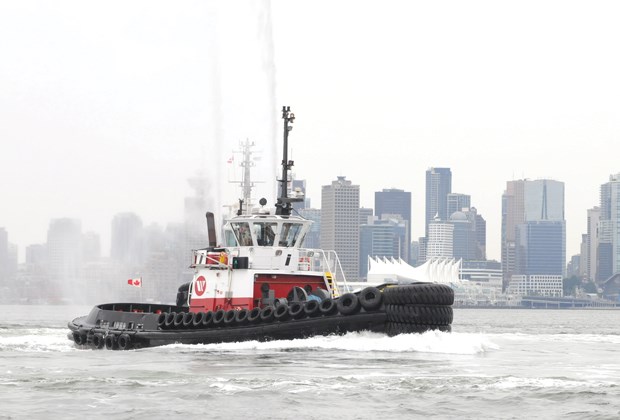A tugboat strike at Seaspan with the potential to paralyze marine operations in the port has been averted after the federal labour minister stepped in this week to get the two sides back together.
Labour Minister Kellie Leitch flew to the West Coast after two unions representing about 400 Seaspan tugboat captains and crew threatened to strike as early as Sunday.
Following discussions, the company and the Canadian Merchant Service Guild, representing tugboat captains, mates and engineers, agreed to arbitration.
The International Longshore and Warehouse Union representing deckhands is not a part of that process, but has agreed not to strike while talks continue.
Strike votes in the past week were prompted after Seaspan sent a letter to the union, saying it intended to unilaterally impose a new agreement on union members, said Terry Engler, president of the ILWU's Local 400.
Engler described that as an "outrage" and an "attempt to smash the union."
"No one has heard of that happening before," he said.
The latest moves come after 15 months of negotiations, which have so far failed to result in a contract. The last contract ran out in October of last year.
Engler said the big issues for union members are benefit, pension and overtime provisions, which he said Seaspan is trying to "more than roll back."
Jonathan Whitworth, chief executive officer for Seaspan, said the company is asking for changes to ensure the business stays competitive with other companies.
While the union agreements have not changed much in 40 years, in the last five years, Seaspan has faced increased competition from companies doing towing and ship docking that have significantly lower labour costs, said Whitworth.
Seaspan labour costs on tugboats are about 30 per cent higher than the competition, he said, which is passed on to the customers. Many of those customers - including those in the forest industry - are already operating on a "razor's edge" of viability, he said.
In the past five years, Seaspan has lost 120 mariners' jobs, according to Whitworth.
"It has everything to do with competition and economics," Whitworth said.
He said the benefits for the tugboat captains and crews are substantially different than those for union members who work in the shipyards, for instance.
Engler said his union has never been on strike before at Seaspan. He said while a strike has been averted for now, that remains a possibility if an agreement can't be reached.
A spokesman for the mariners' guild could not be reached for comment.
Whitworth said the tugboat captains and crews are crucial to Seaspan's operations in the port and on the coast.
"Without them we don't work," he said. "We don't operate."



